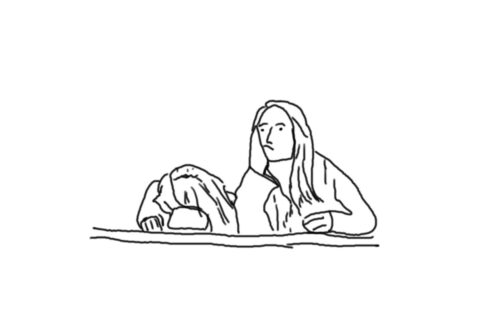Spencer Toy has written a critique about the presuppositional method of apologetics. His main critique seems to be that, given the Calvinistic underpinnings of the method there would be no way to sure that God has not revealed some error to the Calvinist to further his own glory. The problem, as Toy sees it, is the relationship between human reasoning and Calvinism. This, Toy argues, produces a problem for presuppositionalists.
There are two ‘presuppositions’ Toy thinks produce the problem:
TD: Total Depravity, the view that “human reasoning is so totally depraved that any effort to understand or believe the Gospel is futile. Unless and until the Holy Spirit regenerates the reprobate mind, a person will continue to suppress the truth regardless of how well it is articulated or argued for.”
DD: Divine determinism, the view that “God causally ordains all things that come to pass. There is no sense in which God merely “permits” things to occur. Everything that comes to pass, to include the unbelief of the reprobate, comes to pass because in so happening God will bring the most glory to Himself.”
According to Toy, total depravity entails that no unbeliever one can understand or believe the gospel without the work of the Holy Spirit. Human reasoning is so messed up that it is dependent upon God’s work in order for it to function properly. Furthermore, whether or not anyone is able to come to true beliefs is contingent upon God determining in advance that they come to true beliefs. The same goes for false beliefs. Although Toy’s example is the belief that presuppositionalism is the apologetic method most consistent with scripture, it could be any belief:
I would like you to consider someone like Dr. Frank Turek who is not a Calvinist and uses the Classical Apologetics method. Based on the admission of Reformed theologians themselves, it seems to me that a Calvinist has to believe that ultimately the reason that Dr. Turek is in error regarding God’s Sovereignty and the proper apologetic method is because God has not granted it to him to understand these things. Just as the reprobate man’s fallen reason can never lead him to God, neither can Dr. Turek’s reason lead him to the truth of Reformed theology unless and until the Holy Spirit grants it to him to understand it. If Dr. Turek persists in his error, he does so only because God has sovereignly determined before the foundation of the world that he would be in error, for through Dr. Turek’s theological errors God will bring the most glory to Himself.
The problem seems to be that if divine determinism is true, then what you and I believe now about the Bible has been determined by God from ages past. If so, then we couldn’t have believed otherwise. You and I, no doubt, don’t agree about everything the Bible says. Therefore, some beliefs about the Bible that you and I have are false due to our failure to interpret the Bible correctly. The problem is: how do we know whose beliefs are false and whose are true? As Toy concludes:
This I think truly exposes the fatal flaw of the Calvinist’s embrace of Divine determinism… One very well may believe true things, but only because they’ve already been determined to believe those things just as much as their opponents have been determined to believe false things. In such a system, nothing can be rationally affirmed.
Toy argues that the fact that Calvinists disagree with non-Calvinists over what scripture says about depravity and Divine determinism implies that there is a problem with Calvinism. Disagreement suggests that there is some idea/theory (or whatever) that two people are in conflict over; they disagree over whether or not it is true. But in order to disagree, it cannot be the case that people have no choice in what to believe. If there is no choice, then how do they know that their beliefs are not just chosen for them. Toy’s argument is something like this:
- If I am to come to a belief rationally, then I must be able to freely choose what to believe
- If Calvinism is the case, then I could not freely choose what to believe
- Therefore, either Calvinism is false or I cannot freely choose what to believe
- I can freely choose what to believe
- Therefore, Calvinism is false
I suppose I could act in a way to produce different beliefs. I could suppress some evidence, ignore my intuitions, and focus my mind on evidence that supports a different belief. Apart from the fact that such a move would be mildly irrational, the discussion has moved from beliefs to the more traditional area of debate between Calvinists and non-Calvinists, that of action.
However, it does not follow from this that I am not responsible for what I believe. I refer the reader to what have have said above: it is not clear that anyone chooses what to believe. It is possible I could have believed other than what I do, but choice doesn’t seem to play into it. I could have believed that it is raining today if it was actually raining today. I don’t seem to have any say in the matter of what I believe about the weather. I can’t choose to believe it is raining if it is not actually raining. Now, you might say that I did choose to believe that Calvinism is true and I could have chosen otherwise. We can both agree on the weather but the truth of Calvinism is another matter. Upon reflection, I don’t see why the fact that we disagree over something leads to the belief that I chose to believe it. Is it the case that propositions we agree on are unchosen and propositions we disagree on are chosen? That doesn’t seem right. Surely there are many beliefs you and I have that contradict each other and yet we didn’t choose to believe them. One of those beliefs is the nature of human free will and whether or not it is compatible with divine determinism.
Perhaps there are actions that I took that led me to sources of information, persuasive people, and other influences that caused me to believe what I do. But this isn’t about actions; it is about belief. Though there are some good arguments against Calvinism in regards to actions and moral responsibility, an argument about belief forming is not. On both views–Calvinist and non–beliefs are not chosen in any relevant way.
See this post for my comments on determinism and moral responsibility and this post for a discussion about love and free will.



